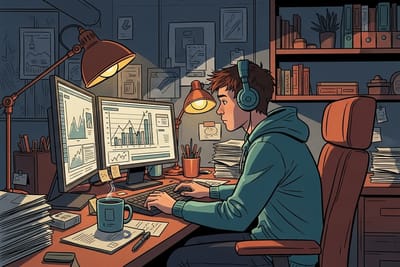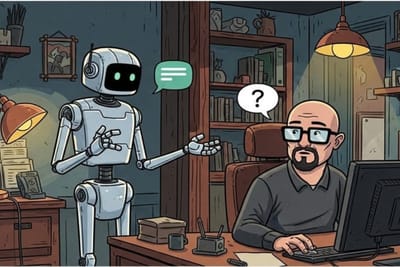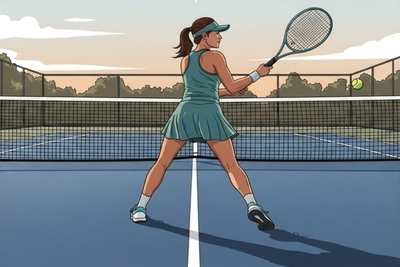The Big Lebowski and the State of Book Publishing

A recent post by Forrester Research's James McQuivey about the state of book publishing aroused my ire today. McQuivey laments the recent decision by Simon and Schuster and Hachette Book Group not to "release most eBook editions until the hardbacks have been on shelves for four months."
McQuivey correctly points out that "old guard" media institutions such as the record industry, magazines, newspapers, and publishers have been slow to embrace the digital age. It's certainly hard to argue with that assessment.
However, I have a hard time stomaching McQuivey's argument here:
...books really aren't worth $25. Just like newspapers weren't really worth what people were paying for them and magazines, either. And CDs, and DVDs. These were all worthy of a high price when analog economics were the only economics. When people understood that they paid $25 to get some paper, ink, and a binding, all of which had to be warehoused, shipped, and slotted on shelves in warm stores with muzak and imported coffee odors wafting through the environment.
A digital book suffers from none of those impediments. Therefore: it should be cheaper. Stop glorying in historical prices and accept the fact that a digital book should not cost $25 unless it comes with some awesome, exclusive premium that makes it worthy of such a price.
Different Conceptions of "Value" and a Flawed Argument

Of course, the digital world means that the marginal cost of reproducing a eBook or digital track is effectively zero. This is simple economics. I have no bone to pick with McQuivey on this point.
However, am I the only one a little uncomfortable with some pundit deciding what a book should be worth? Or, more colorfully, to quote The Dude in The Big Lebowski, "What the fuck is with this guy?"
Call me laissez faire, but shouldn't the market drive the price of a book? Do we really want someone arbitrarily deciding what constitutes "fair" value.
I can think of books that, on a personal level, have given me thousands of dollars in "value", such as Dale Carnegie's How to Win Friends and Influence People. That book significantly improved my people skills and relationships. On the other hand, for me, a trashy romance novel has no value. To others, however, it's a much-needed form of escape.
At a core level, value has always varied according to each individual consumer. If Rush released a new CD tomorrow with a $100 price, rest assured that I'd buy it without blinking an eye. Most of my friends wouldn't pay $1 for the same album. There's one simple reason for this apparent contradiction:
I have much better taste in music than most of my friends.
I jest, of course. But if you think about only the cost of production, then yes, $25 might seem inflated for a book. However, think about the following:
- the number of pages in most books
- how long it takes a person to read an average book of 250 pages
On a per-hour basis, reading is still a really cheap form of entertainment, whether the price of a book is $25 or the $10 number that McQuivey deems appropriate.
A Different World and the Consequences of "Free"
Finally, let's not forget that there are myriad stores and sites (ok, just sites) selling new and used books. If a book is listed at $24.95, does anyone actually pay that? Let's go back a few years. We are certainly not living in the early 90s. When I was in college, no one was able to find low cost textbooks nearly as easily as one can today. We were beholden to the college book store. Not no mo'.
The bottom line is that the Internet has caused the prices of many things to drop precipitously—and books certainly fall into that group. The net is an unparalleled distribution network driving prices lower and lower. Those that think that all books should be "free" means that fewer authors will take the time to pen important and entertaining works. Do we as a society really want that?
What do you think? Is this author being defensive and, to use The Dude's word, uptight?







Member discussion